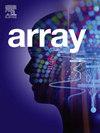基于对比交叉关注的联邦双cnn结构舰船雷达入侵检测
IF 4.5
Q2 COMPUTER SCIENCE, THEORY & METHODS
引用次数: 0
摘要
海上行动的复杂性不断升级,先进雷达系统的集成提高了海上基础设施对复杂网络入侵的敏感性。在这种环境中确保弹性和保护隐私的入侵检测需要创新的解决方案,能够从分布式异构数据源中学习,而不会损害敏感信息。本文介绍了一种新的联邦学习框架FED-GEM-CN,该框架是专门为海事雷达入侵检测设计的。该架构集成了双并行卷积神经网络(CNN)管道来独立处理网络和雷达模态特征,随后通过多头交叉注意机制将其融合以捕获复杂的模态间依赖关系。为了增强特征可判别性,我们采用了有监督的对比学习范式,而梯度情景记忆缓冲策略保留了具有挑战性的实例,以增强模型对难以检测的入侵的鲁棒性。在联邦学习方案下运行,FED-GEM-CN促进了跨分布式雷达节点的协作模型优化,保持了数据的局部性,并减轻了集中式方法固有的隐私风险。在全面的真实世界海上雷达数据集上进行的实验评估表明,FED-GEM-CN取得了卓越的性能,在联邦轮次中获得了超过99%的总体精度,宏观f1得分高于0.97,通常在15次通信迭代中观察到收敛。这些发现证实了所提出的系统在提供针对海事雷达网络约束的强大、节能和隐私感知入侵检测方面的有效性。该方法强调了在关键海事基础设施中部署智能、分布式网络安全解决方案的重大进展。本文章由计算机程序翻译,如有差异,请以英文原文为准。
FED-GEM-CN: A federated dual-CNN architecture with contrastive cross-attention for maritime radar intrusion detection
The escalating complexity of maritime operations and the integration of advanced radar systems have heightened the susceptibility of maritime infrastructures to sophisticated cyber intrusions. Ensuring resilient and privacy-preserving intrusion detection in such environments necessitates innovative solutions capable of learning from distributed, heterogeneous data sources without compromising sensitive information. This study introduces FED-GEM-CN, a novel federated learning framework designed explicitly for maritime radar intrusion detection. The proposed architecture integrates dual parallel convolutional neural network (CNN) pipelines to independently process network and radar modality features, which are subsequently fused via a multi-head cross-attention mechanism to capture intricate inter-modal dependencies. To enhance feature discriminability, a supervised contrastive learning paradigm is incorporated, while a gradient episodic memory (GEM) buffer strategically retains challenging instances to bolster model robustness against hard-to-detect intrusions. Operating under a federated learning scheme, FED-GEM-CN facilitates collaborative model optimization across distributed radar nodes, preserving data locality and mitigating privacy risks inherent in centralized approaches. Experimental evaluations conducted on a comprehensive real-world maritime radar dataset reveal that FED-GEM-CN achieves superior performance, attaining an overall accuracy exceeding 99 % and macro F1-scores above 0.97 across federated rounds, with convergence typically observed within 15 communication iterations. These findings substantiate the efficacy of the proposed system in delivering robust, energy-efficient, and privacy-aware intrusion detection tailored to the constraints of maritime radar networks. The approach underscores a significant advancement toward deploying intelligent, distributed cybersecurity solutions within critical maritime infrastructures.
求助全文
通过发布文献求助,成功后即可免费获取论文全文。
去求助

 求助内容:
求助内容: 应助结果提醒方式:
应助结果提醒方式:


